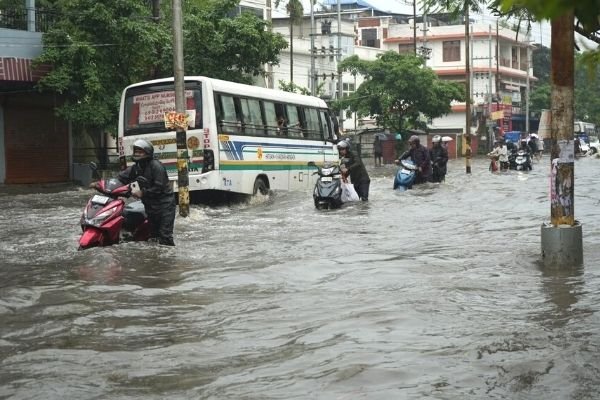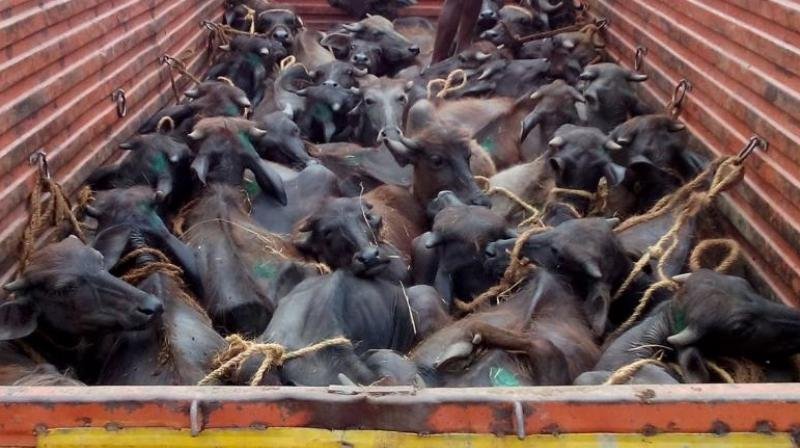HT Digital
GUWAHATI, MAY 31: As floodwaters continue to strangle Guwahati—causing a blanket of power outages and school closures—political attention has turned to the hills of nearby Meghalaya, increasingly blamed for the city’s rising water crisis. With growing public pressure and a Supreme Court directive, Meghalaya Chief Minister Conrad K. Sangma is set to meet Assam Chief Minister Himanta Biswa Sarma in Assam on June 2 for imperative talks.
The next meeting will be dealing with critical environmental issues arising out of indiscriminate hill cutting along the Assam-Meghalaya border off Jorabat. Locals and environmentalists claim that extensive deforestation and unplanned terrain alteration in Meghalaya have caused appreciable increases in surface runoff into Guwahati. The city’s old drainage system has been found incapable of coping with the increased water flow, which has resulted in frequent urban flooding.
The Central Empowered Committee (CEC), ordered by the Supreme Court to oversee ecological infractions, recently raised the red flag and called on both state governments to draw up a mutual action plan to be presented to the court.
But Assam Chief Minister Himanta Biswa Sarma played down the contribution of Meghalaya to the flooding. In an interaction with journalists on Friday, he blamed the crisis on a deep-seated weather system emanating from Bangladesh. “We are seeing the effect of an extraordinary depression that has caused incessant rain. This is not human intervention — it’s a force of nature,” he said.
While Sarma did concede that Guwahati’s chronic waterlogging issues are “partially influenced” by unregulated development in Meghalaya, he emphasized that the current flooding was primarily due to extreme weather conditions rather than cross-border environmental mismanagement.
In spite of these words, residents of Guwahati are still caught in an escalating emergency. With the India Meteorological Department (IMD) continuing a red alert for Assam, and main city systems creaking under the strain, tempers are on the rise. For individuals trudging through waist-high water in their communities, the continuing politicking provides scant solace.













